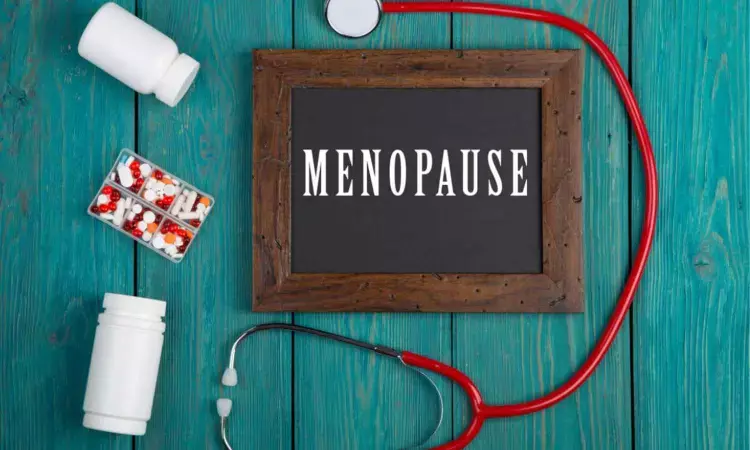- Home
- Medical news & Guidelines
- Anesthesiology
- Cardiology and CTVS
- Critical Care
- Dentistry
- Dermatology
- Diabetes and Endocrinology
- ENT
- Gastroenterology
- Medicine
- Nephrology
- Neurology
- Obstretics-Gynaecology
- Oncology
- Ophthalmology
- Orthopaedics
- Pediatrics-Neonatology
- Psychiatry
- Pulmonology
- Radiology
- Surgery
- Urology
- Laboratory Medicine
- Diet
- Nursing
- Paramedical
- Physiotherapy
- Health news
- Fact Check
- Bone Health Fact Check
- Brain Health Fact Check
- Cancer Related Fact Check
- Child Care Fact Check
- Dental and oral health fact check
- Diabetes and metabolic health fact check
- Diet and Nutrition Fact Check
- Eye and ENT Care Fact Check
- Fitness fact check
- Gut health fact check
- Heart health fact check
- Kidney health fact check
- Medical education fact check
- Men's health fact check
- Respiratory fact check
- Skin and hair care fact check
- Vaccine and Immunization fact check
- Women's health fact check
- AYUSH
- State News
- Andaman and Nicobar Islands
- Andhra Pradesh
- Arunachal Pradesh
- Assam
- Bihar
- Chandigarh
- Chattisgarh
- Dadra and Nagar Haveli
- Daman and Diu
- Delhi
- Goa
- Gujarat
- Haryana
- Himachal Pradesh
- Jammu & Kashmir
- Jharkhand
- Karnataka
- Kerala
- Ladakh
- Lakshadweep
- Madhya Pradesh
- Maharashtra
- Manipur
- Meghalaya
- Mizoram
- Nagaland
- Odisha
- Puducherry
- Punjab
- Rajasthan
- Sikkim
- Tamil Nadu
- Telangana
- Tripura
- Uttar Pradesh
- Uttrakhand
- West Bengal
- Medical Education
- Industry
Fezolinetant effective treatment of vasomotor symptoms associated with menopause

A study by Kimball A Johnson and peers found fezolinetant to be a safe and effective treatment for moderate-to-severe vasomotor symptoms (VMS) associated with menopause. The findings were published in The Journal of Clinical Endocrinology & Metabolism.
The clinical trial evaluated the efficacy and safety of fezolinetant, a drug for the treatment of moderate-to-severe vasomotor symptoms (VMS) associated with menopause. The trial included women between the ages of 40-65 who experienced at least 7 moderate-to-severe VMS per day.
The study was a double-blind, placebo-controlled 12-week trial, followed by a 40-week active treatment extension. Participants were randomized to receive placebo, fezolinetant 30 mg, or fezolinetant 45 mg daily for the initial 12 weeks. After the initial 12 weeks, participants who completed the trial were rerandomized to receive fezolinetant for an additional 40 weeks. The primary endpoints were the mean daily change from baseline in VMS frequency and severity at weeks 4 and 12.
The results showed that both fezolinetant doses were effective in reducing VMS frequency and severity compared to placebo at week 4 and week 12. The reduction in VMS frequency and severity was statistically significant for both doses at both time points. Moreover, improvement in VMS frequency and severity was observed as early as week 1 and was maintained through week 52. The drug was well-tolerated with few serious adverse events reported.
The Authors found these results important as VMS can be debilitating and have a significant impact on the quality of life of women experiencing menopause. The availability of an effective and well-tolerated treatment can provide relief for many women suffering from VMS.
Source:
Johnson, K. A., Martin, N., Nappi, R. E., Neal-Perry, G., Shapiro, M., Stute, P., Thurston, R. C., Wolfman, W., English, M., Franklin, C., Lee, M., & Santoro, N. (2023). Efficacy and Safety of Fezolinetant in Moderate-to-Severe Vasomotor Symptoms Associated With Menopause: A Phase 3 RCT. In The Journal of Clinical Endocrinology & Metabolism. The Endocrine Society. https://doi.org/10.1210/clinem/dgad058
Neuroscience Masters graduate
Jacinthlyn Sylvia, a Neuroscience Master's graduate from Chennai has worked extensively in deciphering the neurobiology of cognition and motor control in aging. She also has spread-out exposure to Neurosurgery from her Bachelor’s. She is currently involved in active Neuro-Oncology research. She is an upcoming neuroscientist with a fiery passion for writing. Her news cover at Medical Dialogues feature recent discoveries and updates from the healthcare and biomedical research fields. She can be reached at editorial@medicaldialogues.in
Dr Kamal Kant Kohli-MBBS, DTCD- a chest specialist with more than 30 years of practice and a flair for writing clinical articles, Dr Kamal Kant Kohli joined Medical Dialogues as a Chief Editor of Medical News. Besides writing articles, as an editor, he proofreads and verifies all the medical content published on Medical Dialogues including those coming from journals, studies,medical conferences,guidelines etc. Email: drkohli@medicaldialogues.in. Contact no. 011-43720751


